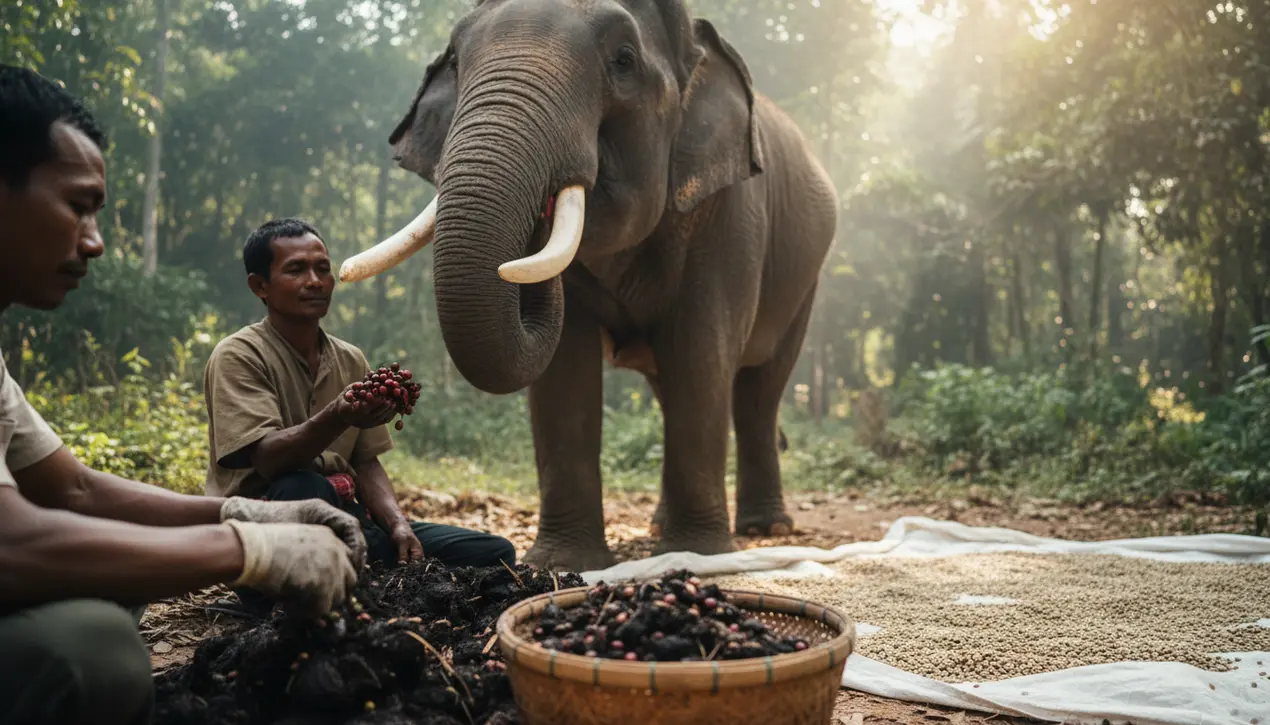
Otherfood & dining
The World's Most Expensive Coffee Comes From Elephant Dung
ME
Megan Hill
3 hours ago7 min read
In the wonderfully weird world of luxury consumables, where gold-leaf steaks and diamond-dusted desserts have somehow become almost mundane, a new champion of extravagance has emerged from the most unlikely of places: the digestive tract of an elephant. This isn't a prank; it's the reality of Black Ivory Coffee, a brew so exclusive and so bizarrely sourced that its very existence makes that $20 artisanal pour-over you were eyeing seem like instant diner coffee.The process is as intricate as it is instinctually shocking. In Northern Thailand, specifically within the Golden Triangle Asian Elephant Foundation, select Arabica cherries are carefully fed to rescued elephants.What happens next is a journey of gastronomical alchemy. Over the next 15 to 70 hours, the natural enzymes within the elephant's stomach work to break down the proteins in the coffee beans.Proteins are the primary culprits behind coffee's bitterness, so this unique fermentation process, fueled by a diet rich in tropical fruits and vegetation, fundamentally alters the bean's chemical composition. The result, once the beans are—ahem—harvested from the dung, thoroughly washed (a step you'll be profoundly grateful for), and sun-dried, is a cup that connoisseurs describe as remarkably smooth, lacking the bitter edge of traditional coffees, with subtle notes of chocolate, malt, and even a hint of grassiness, all without the need for sugar.Of course, this biological refinement doesn't come cheap. A single kilogram can command prices upwards of $2,000, making it easily the world's most expensive coffee, a title it wrested from the more well-known civet coffee, or Kopi Luwak, which undergoes a similar process in a different animal.The cost is a function of staggering inefficiency; it takes roughly 33 kilograms of raw coffee cherries to produce a single kilogram of the finished Black Ivory product, as the elephants digest the vast majority. This raises immediate questions about sustainability and ethics.While the company emphasizes its philanthropic model, supporting the care and conservation of the elephants involved, critics inevitably question the morality of a luxury product reliant on animal consumption, despite the company's assurances that the process is natural and non-harmful. The coffee's primary market is a telling glimpse into global wealth distribution, served in a handful of ultra-luxury hotels in destinations like the Maldives, Abu Dhabi, and, of course, Dubai, a city that seems to have a penchant for record-breaking decadence, as evidenced by its own $600 latte.Ultimately, Black Ivory Coffee is more than just a beverage; it's a potent symbol. It represents the outer limits of experiential luxury, where the story of its origin is an intrinsic part of the product's astronomical value. It forces a conversation about what we value, the narratives we're willing to buy into, and the very definition of luxury in a world where the ultimate status symbol might just be a cup of coffee that has, quite literally, been through the wringer.
#luxury coffee
#elephant dung coffee
#expensive food
#food trends
#unusual dining
#editorial picks news
Stay Informed. Act Smarter.
Get weekly highlights, major headlines, and expert insights — then put your knowledge to work in our live prediction markets.
Comments
Loading comments...
© 2025 Outpoll Service LTD. All rights reserved.